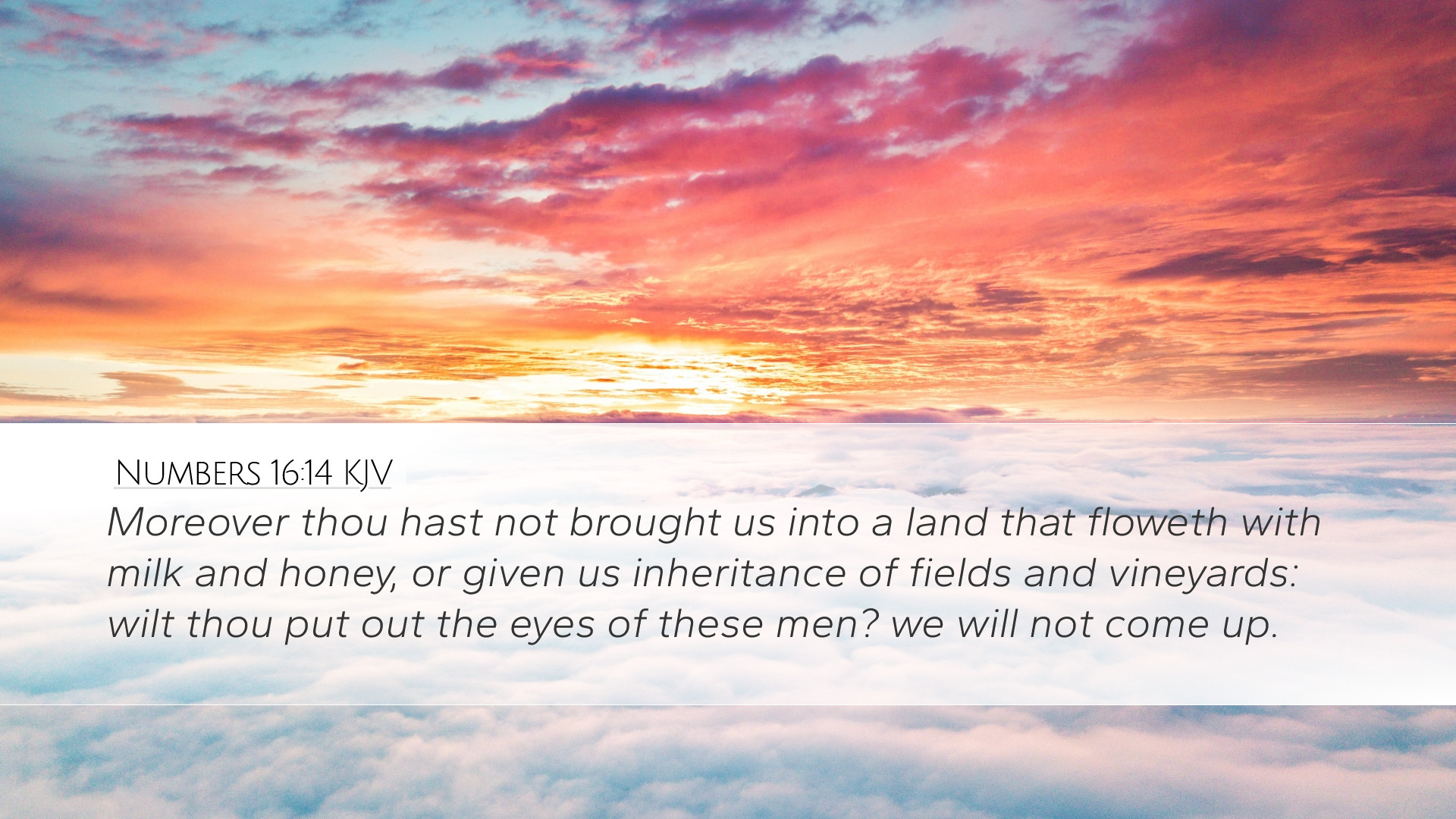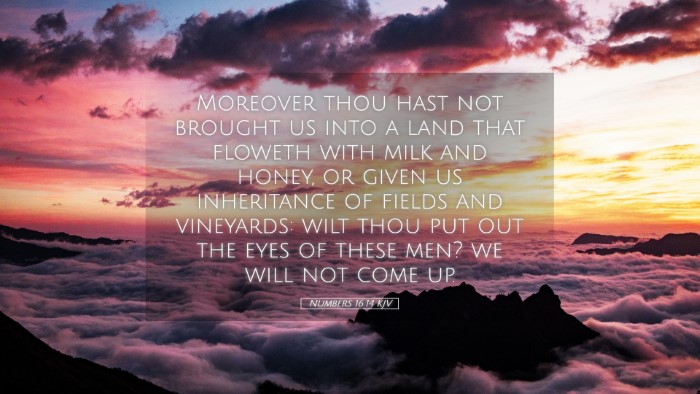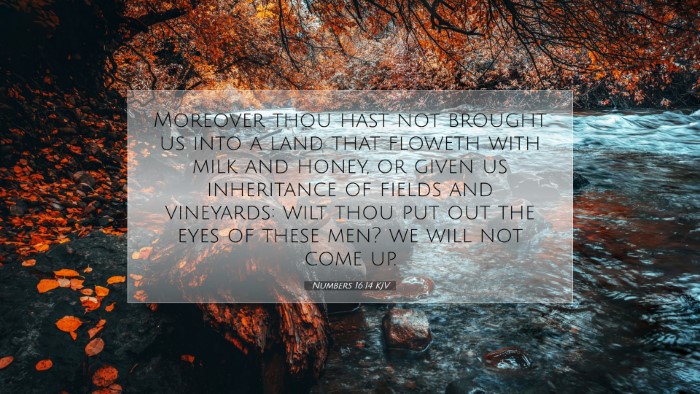Commentary on Numbers 16:14
Verse Reference: Numbers 16:14 - "Moreover, you have not brought us into a land that flows with milk and honey, nor given us inheritance of fields and vineyards: will you put out the eyes of these men? We will not come up."
Contextual Overview
This verse is nestled within a broader narrative of rebellion and dissent among the Israelites against Moses and Aaron's leadership. Korah, Dathan, and Abiram challenge the authority of Moses, expressing dissatisfaction with their journey and the leadership provided by God through him. The complaint centers around their expectation of entering the Promised Land, showcasing a deep-rooted discontent with the current state of their pilgrimage.
Theological Themes
- Rebellion Against God’s Order:
At its core, the rebellion instigated by Korah and his cohorts reflects a profound rejection of divinely appointed leadership. Matthew Henry emphasizes that their grievances are not simply about dissatisfaction but challenge God's sovereignty and the efficacy of His chosen leaders.
- Promises and Expectations:
Albert Barnes points out that the criticism focuses on God’s promises, specifically the land flowing with milk and honey. This indicates a misunderstanding of God’s promises and timing. The Israelites had yet to enter the land, but their impatience reveals their spiritual blindness.
- The Perils of Discontent:
Adam Clarke notes that their refusal to follow Moses manifests the dangers of discontent and rebellion. These attitudes can lead to destruction, both spiritually and communally, as they undermine the unity and purpose established by God.
Insights from Commentaries
Matthew Henry: Henry illustrates the essence of the Israelites' accusation against Moses, reflecting an incredulous sense of entitlement. He suggests that their view of Moses as a leader becomes skewed by their impatience and expectations of immediate rewards. He interprets the phrase "put out the eyes of these men" as an emotionally charged expression, implying that Moses is misleading them.
Albert Barnes: Barnes offers a careful analysis of the specifics in the complaint. The reference to the land flowing with milk and honey represents abundance and God's favor. He sees this as an ironic twist, where the complainants overlook God’s providence that sustained them in the wilderness. Barnes further discusses the significance of inheritance, pointing to the covenantal promises extended to the patriarchs.
Adam Clarke: Clarke provides a deep dive into the emotional and social dynamics at play. He argues that Korah’s rebellion was fueled by jealousy and ambition, causing them to dismiss the miraculous provisions from God. Clarke's analysis emphasizes the disastrous impact of rebellious spirits on the community of believers.
Application for Pastors and Theologians
- The Cost of Rebellion:
The implications of Numbers 16:14 serve as a stark reminder of the dangers of rebellion against divinely established authority. Pastors and leaders must guard against discontent within their congregations, fostering an environment where grievances can be addressed biblically, rather than allowing division to fester.
- Understanding God’s Timing:
This passage calls for patience and trust in God's timing. Leaders are encouraged to teach about the importance of waiting on the Lord and recognizing that His plans often unfold slowly but are ultimately good, as highlighted throughout Scripture.
- Building Community:
Clarke’s observation about the disruptive nature of discontent points to the need for a strong, united community of faith. Encouraging dialogue, fostering unity, and addressing concerns in the light of Scripture can prevent fracturing the body of Christ.
Conclusion
Numbers 16:14 encapsulates a critical moment of rebellion that reverberates through the narrative of the Israelites. Drawing together insights from Matthew Henry, Albert Barnes, and Adam Clarke illustrates the complexity of discontent and rebellion within the community of faith. This passage challenges modern believers to reflect on their attitudes towards leadership, God’s promises, and the communal aspect of faith.
As pastors, students, theologians, and Bible scholars engage with this text, they are reminded of the perpetual relevance of these themes. By recognizing the dangers of rebellion and the necessity of understanding God’s promises, believers can cultivate a faithful response to leadership and divine timing.


